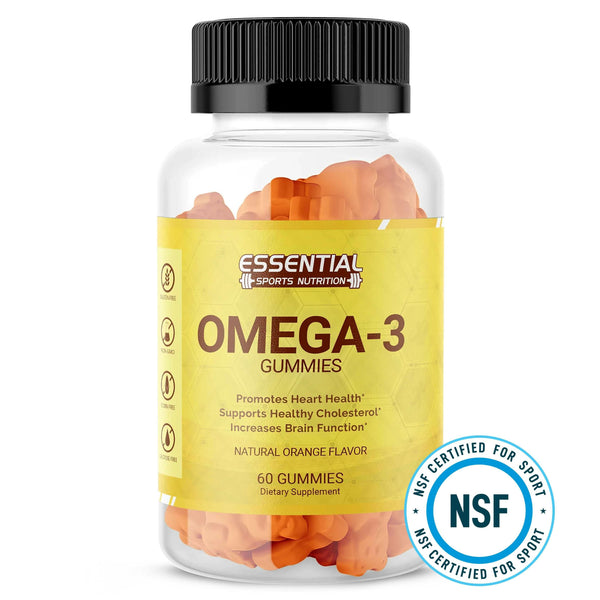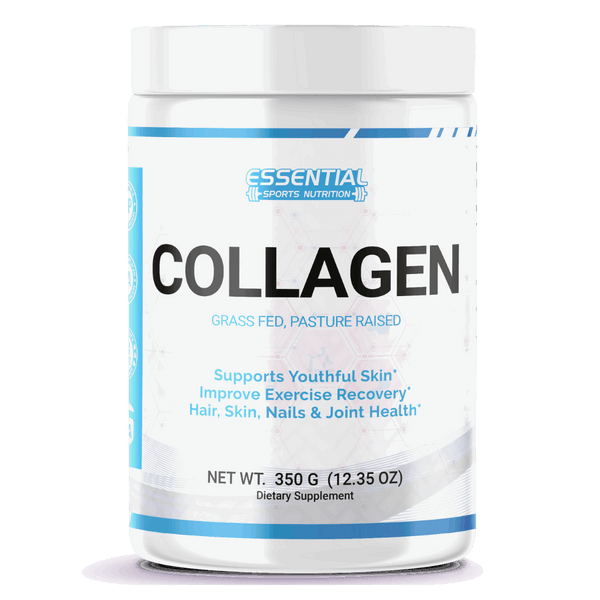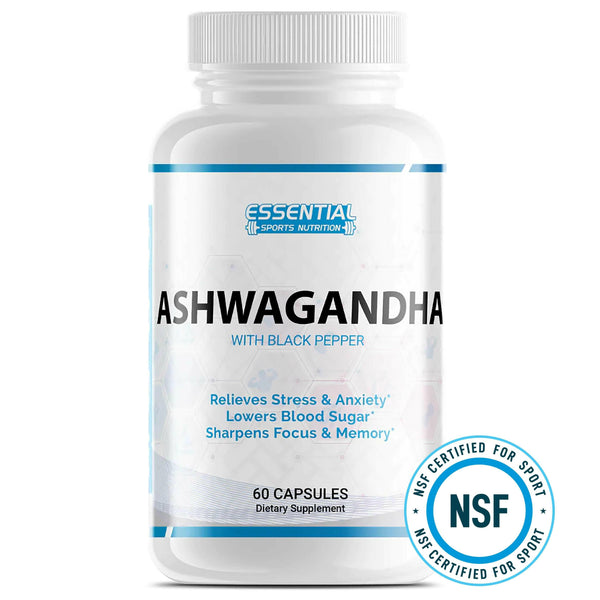Warnings from Your Body: Recognize Early Signs of Vitamin A Deficiency
Warnings from Your Body: Recognize Early Signs of Vitamin A Deficiency
Are you struggling with poor vision at night or dealing with unusually dry skin? These issues might not just be annoying; they could signal a lack of vitamin A in your body. Recognizing early signs of vitamin A deficiency can help you take quick action to avoid serious health problems.
One key fact is that vitamin A deficiency can lead to symptoms such as night blindness, dry eyes, and skin issues. If you're experiencing any of these symptoms, it's important to understand why they're happening and what you can do about it.
In this blog post, we'll break down the common early signs of vitamin A deficiency and explain how they affect your body. You'll also learn about risk factors that make certain groups more vulnerable.
Fnd out how you can protect yourself from this preventable condition!
Key Takeaways
- Night Blindness and Dry Eyes: Night blindness and dry eyes are early signs of vitamin A deficiency. This vitamin is crucial for producing rhodopsin, necessary for seeing in low light.
- Dry Skin: Lack of vitamin A can lead to dry, inflamed skin since this nutrient is important for skin repair and fighting inflammation.
- Severe Conditions: Advanced deficiency causes severe issues like corneal ulcers and keratomalacia, which can result in permanent blindness if untreated.
- Dietary Intake: Poor dietary intake, especially in developing countries, raises the risk of deficiency. Foods rich in vitamin A include leafy vegetables, orange fruits, liver, dairy products, and certain fish.
- Absorption Disorders: Health conditions such as chronic diarrhea or celiac disease hinder the body’s ability to absorb vitamin A from food sources.
Key Symptoms of Vitamin A Deficiency

Night blindness can make it hard to see in low light. Dry eyes might cause discomfort and irritation.
Night Blindness
Night blindness, known medically as nyctalopia, is a clear sign of severe vitamin A deficiency. People with this condition struggle to see in low light or darkness. This problem often starts during pregnancy for women in developing countries, where the intake of vitamin A-rich foods like carrots and sweet potatoes may be low.
Poor night vision can make everyday activities difficult and dangerous. Walking at night becomes risky due to unseen obstacles. This symptom occurs because vitamin A plays an essential role in producing rhodopsin—a pigment necessary for seeing in dim light—found in the retina of your eye.
To prevent night blindness, include more foods rich in vitamin A or take prescribed supplements if advised by a doctor. Ensuring sufficient intake helps maintain healthy vision and overall body functions such as immune system support and skin health.
Dry Eyes
Dry eyes can occur due to a lack of vitamin A. This vital nutrient helps produce tears, which keep the eyes moist and healthy. Without enough vitamin A, the eyes become dry and irritated.
Severe dryness can lead to other issues like Bitot's spots on your cornea. These are white or gray spots caused by dying tissues in the eye. Over time, untreated dry eyes from vitamin A deficiency may result in vision problems or even blindness.
Ensuring proper intake of vitamin A is crucial for maintaining good eye health and preventing these serious outcomes.
Dry Skin
Dry skin can be one of the first signs of vitamin A deficiency. This vitamin plays an important role in skin repair and helps fight inflammation. Without enough vitamin A, the body struggles to heal and maintain healthy skin cells.
As a result, people may notice their skin becomes dry or even inflamed.
Several foods contain this essential nutrient, such as fish, dairy products, and certain fruits like oranges. Ensuring an adequate intake through diet or supplements can help prevent these symptoms.
People with absorption disorders or poor diets are at higher risk for experiencing dry skin due to low levels of this fat-soluble vitamin.
Severe Symptoms Indicating Advanced Deficiency

Corneal ulcers appear when the eye's surface breaks down. Keratomalacia, a condition where the cornea becomes soft and cloudy, can also develop.
Corneal Ulcer
A corneal ulcer is a serious condition caused by advanced Vitamin A deficiency. It starts with damage to the eye's surface, leading to an open sore on the cornea. This type of ulcer does not heal just by increasing vitamin intake; it requires medical help.
Symptoms include severe pain, redness, and vision loss. If untreated, it can lead to permanent blindness. Doctors often see this in places where Vitamin A deficiency is common due to poor diet or absorption issues.
Children are especially at risk for developing these ulcers if they lack enough Vitamin A in their diet.
Keratomalacia
Keratomalacia is a severe condition caused by a lack of vitamin A. The cornea, the clear front part of the eye, starts to soften and can lead to permanent blindness if not treated quickly.
This stage follows earlier symptoms like night blindness and dry eyes.
People with poor diets are most at risk. Foods rich in vitamin A include carrots, sweet potatoes, and leafy greens. In areas where these foods are scarce, many suffer from keratomalacia.
Early intervention with vitamin supplements can help prevent serious damage to the eyes.
Healing takes time but is possible with proper treatment and care. High doses of vitamin A are often required for recovery. Regular check-ups ensure that levels stay healthy and complications do not occur again.
Risk Factors for Vitamin A Deficiency
Some people don't get enough vitamin A from their diet. Certain health problems make it hard to absorb this vital nutrient.
Poor Dietary Intake
Poor dietary intake of vitamin A often leads to deficiency. People who do not eat enough foods that contain vitamin A are at risk. Leafy vegetables, orange fruits like carrots and mangoes, and animal products like liver have high levels of this vital nutrient.
In developing countries, many cannot access these foods regularly.
Vitamin A deficiency is prevalent in regions where diets lack variety. High infection rates also increase the risk because infections deplete stores of vitamin A in the body. Many children in areas without diverse food options suffer from this deficiency, which can cause severe visual impairment and other health problems.
Absorption Disorders
Absorption disorders can lead to vitamin A deficiency. Conditions like chronic diarrhea, celiac disease, and cystic fibrosis make it hard for the body to absorb this vital nutrient.
The gastrointestinal tract plays a key role in how vitamins are taken in.
People with liver disorders also face challenges absorbing vitamin A. Problems in the intestine affecting fat absorption worsen the issue. Stunted growth and higher mortality rates may occur without proper intake of this essential nutrient.
Maintaining healthy levels of vitamin A is crucial. Eating foods rich in retinol, such as leaf vegetables and orange fruits, helps prevent deficiencies. Regular blood tests can monitor your vitamin status and keep your eyes on their health.
Conclusion
Vitamin A deficiency can cause serious health issues. Early signs include night blindness and dry eyes. Eating vitamin A-rich foods can help prevent these problems. Simple steps like adding green vegetables, liver, and eggs to meals boost vitamin intake.
Taking action now ensures better health for you and your family.
Vitamin A Deficiency FAQs
Q: What are the early signs of Vitamin A deficiency?
A: Early signs include night blindness, dry eyes, and itchy skin. These symptoms occur because vitamin A is essential for good vision and healthy skin.
Q: How much Vitamin A should I take to prevent deficiency?
A: The recommended minimum intake varies by age and sex. Generally, adults need about 700-900 micrograms per day from foods that contain vitamin A.
Q: Can you get too much Vitamin A?
A: Yes, taking too much vitamin can lead to toxicity which causes nausea, headaches, and even liver damage.
Q: Which foods are rich in Vitamin A?
A: Foods like carrots, spinach, milk, and meat are good sources of vitamin A. Eating a balanced diet helps maintain proper levels of this important nutrient.
Q: Is Vitamin A deficiency common in developed countries?
A: Vitamin A deficiency is rare in developed countries due to better access to diverse diets and fortified foods.
Q: Why is it important to recognize early signs of Vitamin A deficiency?
A: Recognizing early signs prevents severe health issues like childhood blindness or respiratory tract infections caused by low levels of this crucial vitamin.
Q: What are the early signs of Vitamin A deficiency?
A: Early signs of Vitamin A deficiency may include night blindness, dry eyes, and increased susceptibility to infections.
Q: Which foods contain Vitamin A?
A: Foods rich in Vitamin A include liver, carrots, sweet potatoes, spinach, and dairy products.
Q: What is the recommended form of Vitamin A for supplementation?
A: The recommended form of Vitamin A for supplementation is retinol or retinyl esters.
Q: Can you take too much Vitamin A?
A: Yes, taking too much Vitamin A can lead to toxicity, which may cause symptoms such as nausea, vomiting, and liver damage.
Q: Why is Vitamin A important for the body?
A: Vitamin A is important for maintaining healthy vision, skin, and immune function, as well as supporting growth and development.
Q: What are some forms of Vitamin A deficiency?
A: Some forms of Vitamin A deficiency include primary deficiency due to inadequate intake and secondary deficiency caused by malabsorption or impaired metabolism.
Q: How can you prevent Vitamin A deficiency?
A: You can prevent Vitamin A deficiency by consuming a balanced diet rich in Vitamin A sources such as fruits, vegetables, dairy, and lean meats.























